In these two articles I want to highlight the lives of Lily Wild and Hilary Jones: a mother and daughter. How did they cope with being mothers, wives and being politically active in political parties, their trade union, and their communities.
Northern suffragist Hannah Mitchell described her own struggle with being a wife, a mother and a political activist as having “one hand tied behind me.” My first article looks at the life of Lily Wild during one of the most turbulent periods of history in this country.
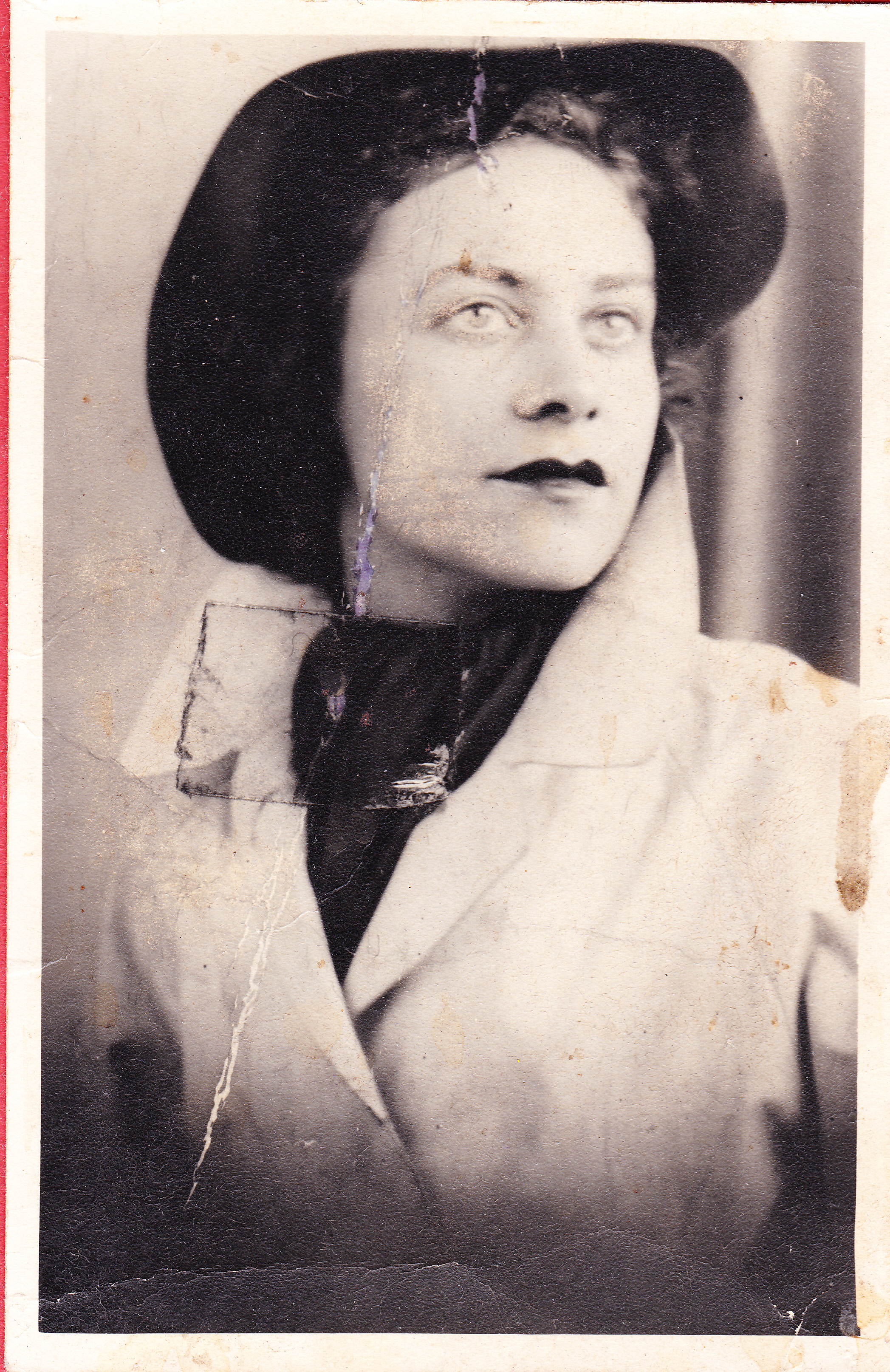
Young Lily
“We joined the Young Communist League for a better life “
Leah Wild – known as Lily Wild (nee Clyne) (1917-2004) – was a familiar figure at Communist Party events and demonstrations in the Manchester area. Born into a Manchester Jewish Communist family she was part of a community that was persecuted and as a girl and woman she joined with her contemporaries to fight back in a lifetime of political activism.
But, as a working-class woman who worked and had children, Lily was never at the forefront of campaigns or demonstrations. Her story is the story of many women who were (and still are) the backbone of movements, but are often invisible in the published histories.
Lily was born in 1917, the year of the revolution in the Soviet Union. Her father, Morris, had fled Petrograd in 1905, after his brother was shot outside the Winter Palace during a demonstration. Miriam, her mother, escaped from a town outside Warsaw and the pogroms against Jews by Russian Cossacks. They met and married in Manchester.
A Jewish community had been in Manchester since 1794. In the 1840 Jews from Eastern Europe flowed into the inner-city areas of Redbank and Strangeways. More orthodox, they set up their synagogues and found employment in workshop trades. By the late 1880s some Jewish people were active in trade unions and a number of radical political organisations. By 1914 the community numbered 30,000, although the political activists were a small part of this.
Morris was a presser in a factory, working long hours in a factory as a presser from 6am to 10pm sometimes but could turn his hand to any part of the production of clothes. We know little about, Miriam, except she worked in the home all her life and bore seven children: two boys and five girls. They lived in the predominantly Jewish area of Cheetham Hill in north Manchester. Lily remembered, “when we got to our bus stop the conductor would shout “Little Israel.”
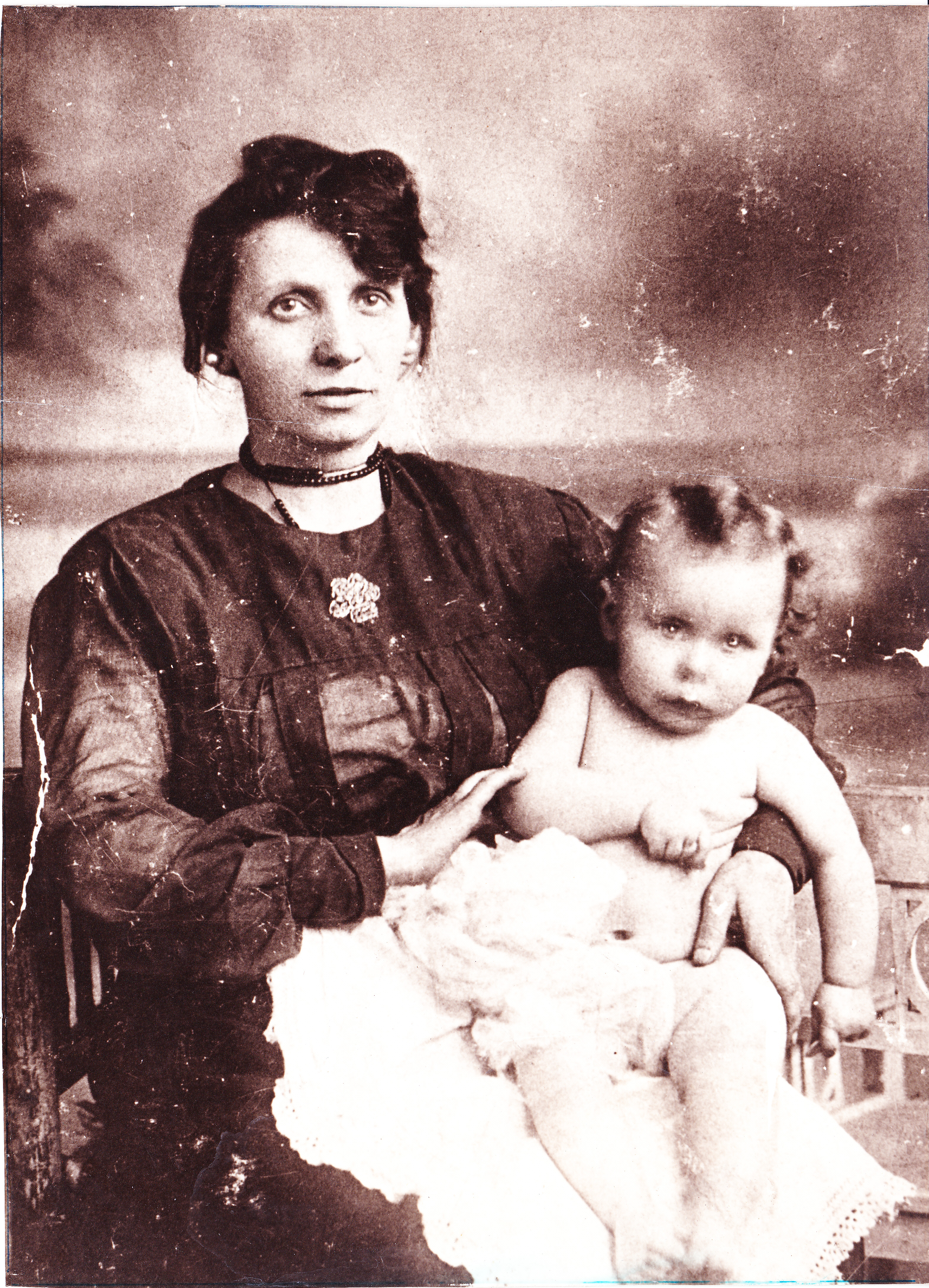
Miriam and Lily
Whilst the family were not orthodox Jews, they observed the festivals. The children went to mainstream schools, although the boys attended Hebrew school.
Morris could not read or write in English so the oldest son Joseph , aged 9, used to read to him when he was at work in the factory. “I used to take him his tea and read the Daily Worker and books to him as he had his tea and for a little time when he was pressing.” Lily and her sisters also read the newspapers to him and, when they got older, went with him to political meetings.
Most of the children followed their father into the clothing industry in local factories. Aged 14 years Lily left school, but her father was not keen on her starting work. Perhaps he wanted her to stay home and help Miriam with her siblings and the housework. But Lily “was dying to get wages and give the money to my mother.” Morris asked at his factory and Lily was taken on but not paid any wages to begin with . It was only after a month when she was producing good work that she was given just 2/6 a week. “It turned me off machining but I stayed working in it for most of my life.”
The Communist Party of Great Britain was set up in 1920 and a Manchester branch was founded in August of that year. Children of immigrant Jews such as the Clyne siblings were attracted to a party that took on board the problems they faced, including racism, poverty and unemployment, as well as welcoming the revolution in Russia.
The Young Communist League was set up in Manchester in 1922 , and by 1925 there were two YCL groups in Manchester with 55 members. By the late 1920s a Cheetham Hill branch of the YCL existed.
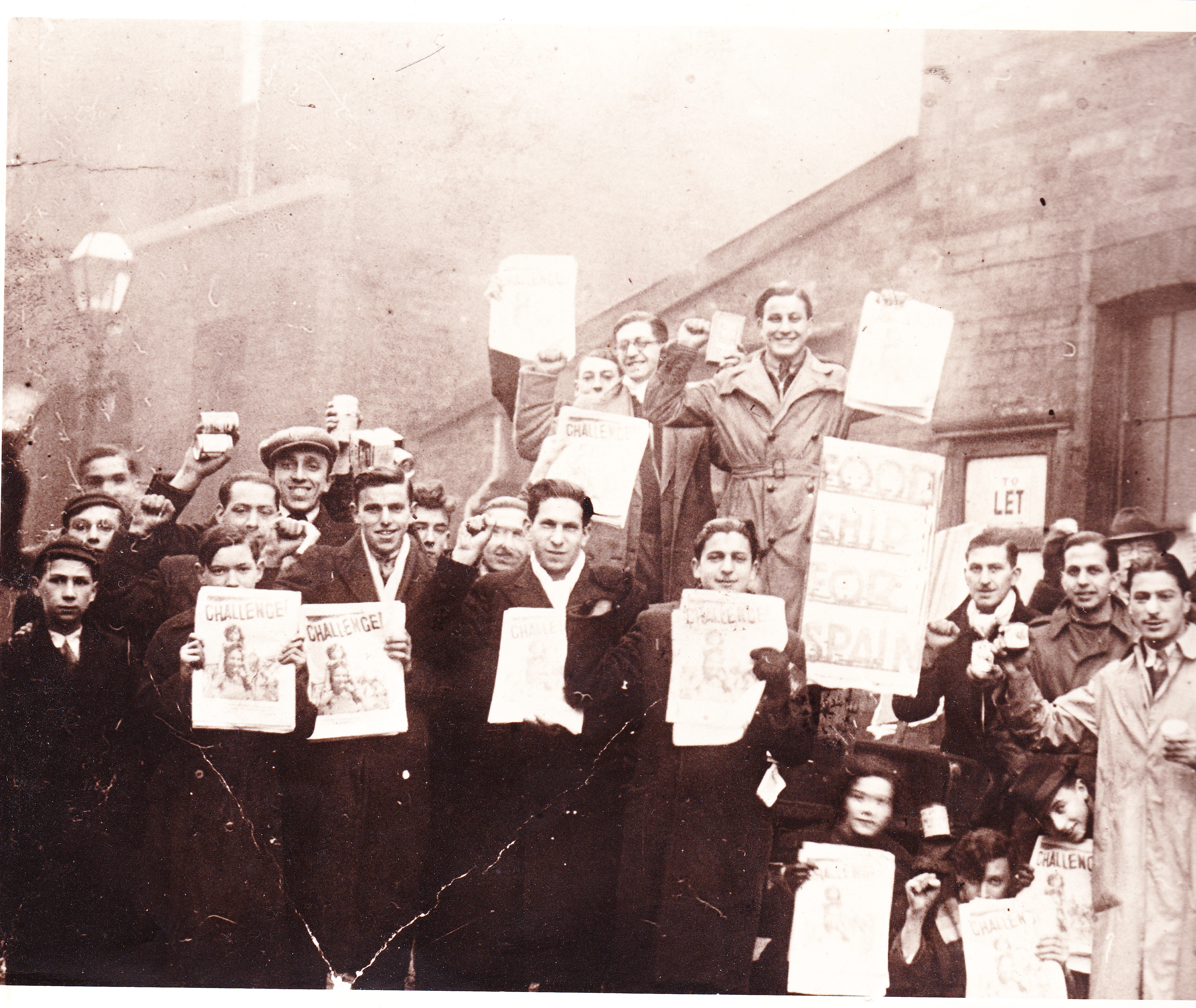
YCL in 1930s. Lily at front kneeling.
Lily’s oldest brother Joseph was the first to join the YCL and visited the Soviet Union. Lily wrote to him in 1932 to tell him she had joined the YCL and enclosed a photo of herself in a new outfit. “He wrote back and didn’t care about me joining, but said he did not like my new outfit and that I looked too old in it!”
Joining the YCL provided not just a political view of the world through meetings and demonstrations, but a social life of dances, films and rambling. Lily and her comrades rented two cottages in Derbyshire so they could escape industrial Manchester, with the girls were in one and the boys in the other. Her brothers, Joseph and Max, took part in the Mass Trespass of Kinder Scout in 1932 and Joseph was one of the arrested.
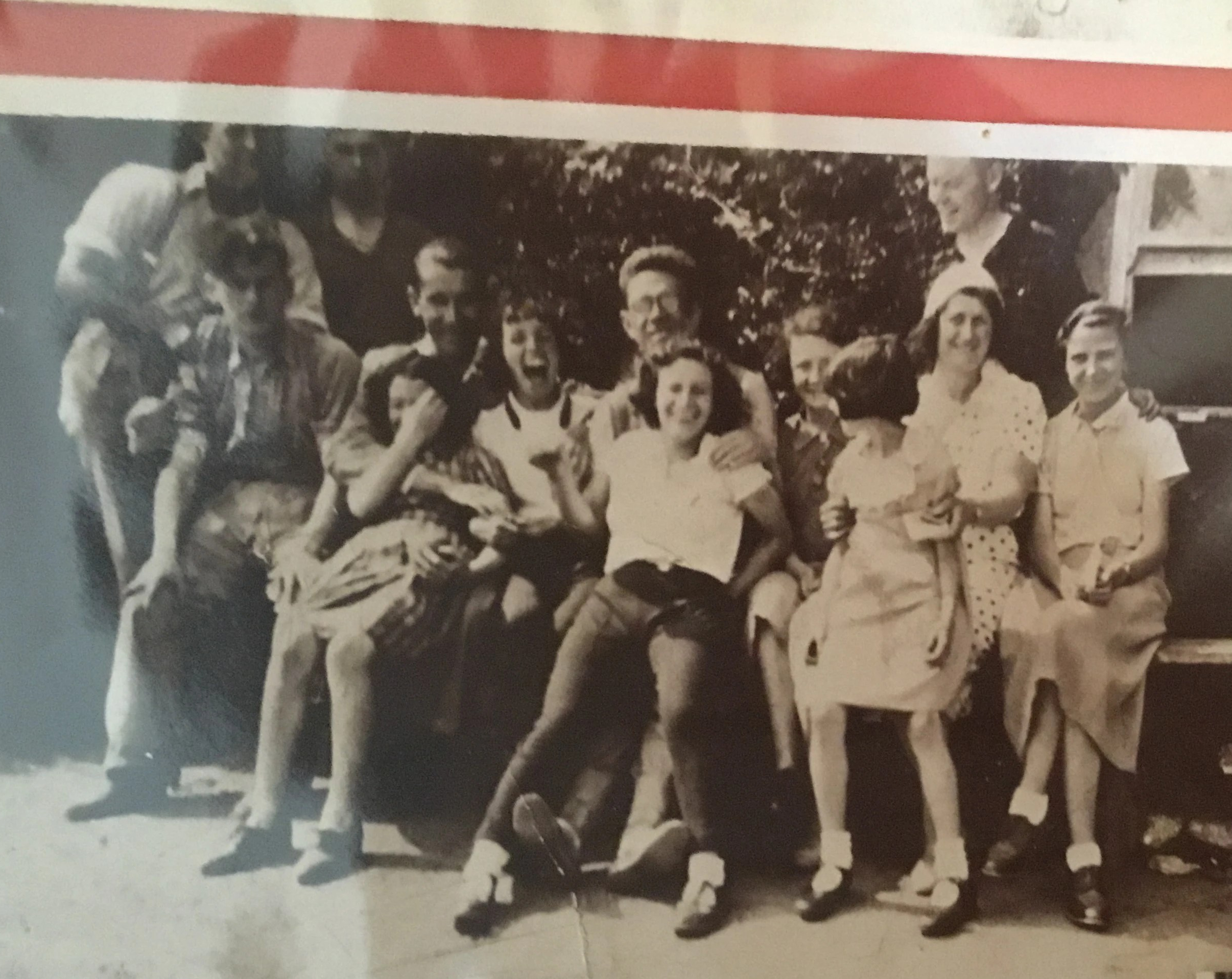
Lily (white blouse) and friends on cycling trip.
The rise of fascism in the 1930s at home and in Italy and Germany drew more young Jewish people into the YCL. Cheetham YCL became the biggest in Manchester with 100 members. Together with the Salford YCL and its smaller membership, both were predominantly Jewish with estimates ranging from 75% to 95%.
In 1932 the British Union of Fascists was set up by Oswald Mosley. Mass meetings were held by the BUF in Manchester from 1933 to 1937. By September 1934 it was estimated that there were 1500 fascists in in Manchester, of which 250 wore black shirts, with another 1,500 in Salford.
In 1934 a fight took place between the fascists and the communists outside a meeting of the Blackshirts in Manchester addressed by Mosley, during which Morris and Lily were arrested by the police. They were found guilty and fined £1 and 5s.
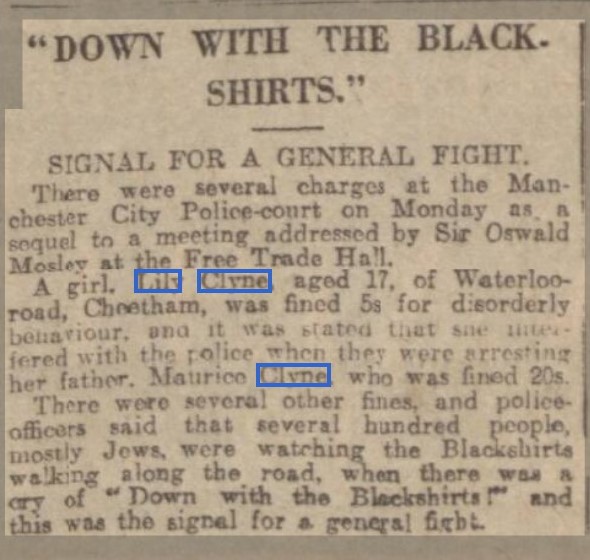
This was just one of many battles where communists fought to stop the fascists spreading their poisonous message of hate. Young Jewish people, knowing what was happening abroad , were determined to stop the fascists entering their area, selling their newspapers, and recruiting other people to their cause. Lily recalled, “All our friends felt the same way and were in the YCL. It felt like all Jews were progressive or communist minded.” Lily was one of the contingents in October 1936 who stood alongside the anti-fascists at Cable Street in London who stopped the Blackshirts invading their community.
After July 1936 supporting the Republican cause in Spain dominated the lives of the YCL. Out of the 20 Manchester and Salford Jews who volunteered to go to Spain at least 13 were members of the YCL or YCL Challenge Club.
Whilst the men went to war the girls and women worked for the cause by raising the issues about the Republican cause, collecting money in the “Aid for Spain” campaign, and taking food parcels to Basque children in the camps that sprang up around Britain. Lily’s parents took in a Basque refugee, Angel, who became part of their family. The women would visit Spanish Republican prisoners who were held in camps and her sisters Freda and Bella married two of them; Felix and Juan “Jack.”
In 1939 as war broke out Lily was still living at home – 381 Waterloo Road in Cheetham Hill – and working as a machinist. The CPGB did not support the Second World War until June 1941 when Nazi Germany invaded the Soviet Union and the party now called it an anti-fascist war.
In 1942 Lily’s life changed completely. She moved out of the family home and had a daughter, Hilary. She continued to work full time in a clothing factory and contend with all the prejudices as an “unmarried mother” whilst staying active in the political events of the day…
In my next article I will be tracing how Hilary followed in her mother’s footsteps….
I am very grateful to Hilary for lending me tapes of interviews that Bill Williams did with the Clyne sisters Lily, Freda, Bella and Rose and their brother Joseph (Judel). They are accessible at the Manchester Jewish Museum.
Also, the PHD thesis by Rosalyn D. Livshin “Nonconformity in the Manchester Jewish Community; The Case of Political Radicalism 1889-1939” (2015). It was invaluable.
Excellent piece of research. Really enjoyed reading this.
Bernadette hope you got my comments. Fascinating. Know 381 Waterloo Rd and area 2 mins from where I lived in Cheetham Hill and think I knew Hilary but waiting for next instalment to see! Xx
Reblogged this on Anarchy in the Sticks!.